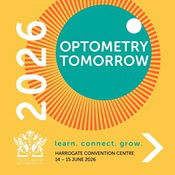Professional Matters Optometry & Dispensing
Questioning the impact on person and business of a GOC inquiry
A need for better streamlining of Professional Investigations
Investigations have an impact – more support is needed
We report on a statement published by:
Deepika Raino, Head of Professional Regulation and Healthcare at Adkirk Law

In a recent stakeholder perceptions report commissioned by the General Optical Council (GOC) only 36% of respondents considered the regulator’s fitness to practise processes to be ‘fair’. Considering the substantial effects a disciplinary investigation can have on a practitioner’s wellbeing – in addition to the impact it can have on an individual’s business – more needs to be done.
By now it is clear that fitness to practise investigations place incredible strain on practitioners’ mental health and can have a crushing impact on their careers and wellbeing.
A case in point
In recent years, improvements have been made to reduce the length of time of fitness to practise investigations can take to resolve and overall, the GOC’s approach tends to be pragmatic and sensible. However, when issues do arise (and they frequently do) individuals under investigation can find themselves left to their own devices.
In one of my more shocking cases, an optometrist was accused by a public body of prescription fraud stretching to tens of thousands of pounds (an accusation that was later found to be baseless and a result of minor administrative errors) and found themself under significant pressure to admit to an offense they had simply not committed. The GOC eventually stepped in to close the case with no further action. However, during the process of the investigation, my client who felt vulnerable, felt there was no one to turn to for any meaningful professional or wellbeing support.
The whole ordeal subjected my client and their young family to a huge financial burden as well a prolonged period of immense stress and anxiety.
Bridging the gap
The GOC has made impressive strides in reducing the number of investigations opened in triage over the past few years, and following its triage pilot in 2019 it was even able to reduce the number of full investigations opened in triage to 43% (down from 83% in the previous year). Now, we need to see a focus on provide wellbeing support to practitioners under investigation; in addition to offering support to unrepresented registrants and encouraging local resolution of cases by employers.
Ultimately, there is more that can be done to support individuals during the investigatory process and even small steps such as signposting organisations that offer help to struggling practitioners could have a very tangible impact. For a practitioner that is feeling strained by a high workload, or is at the most vulnerable point of their career due to a disciplinary review, meaningful well being and professional support could amount to a lifeline.
We value any replies to this issue either from Professional Bodies, GOC or professionals who are or have found themselves in this predicament.
If required to be kept anonymous we will oblige in removing the names however we do need a person’s email address and contact details to verify. Email mail@primaryhealthnet.com






















